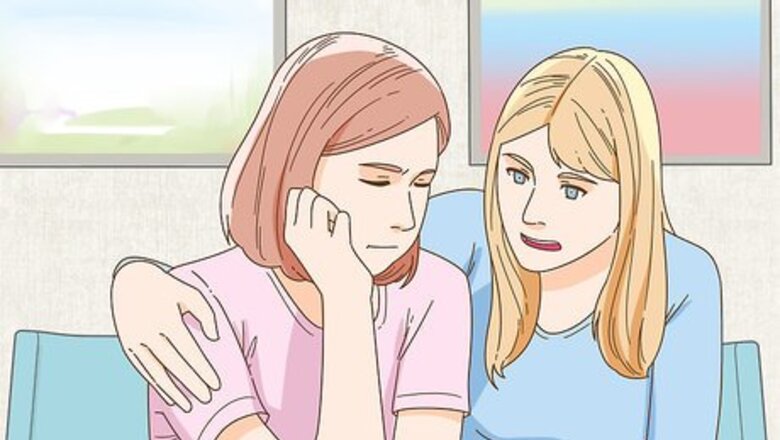
views
Getting Ready to Break Up
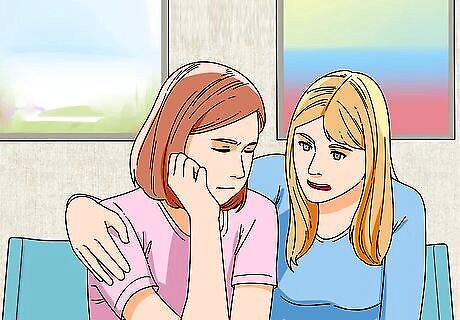
Check your friendship. Some friends may be fake, but some friends may be shy or have a real difficulty connecting with others. If they are real friends, they may have the following characteristics. They might not always say the right thing, but are willing to listen to you if you are struggling. They make you feel comfortable being yourself around them. They support you. They keep in contact with you all the time and not just when they want something. They stick around during the hard times, not just the fun times. They care about your well-being and safety.
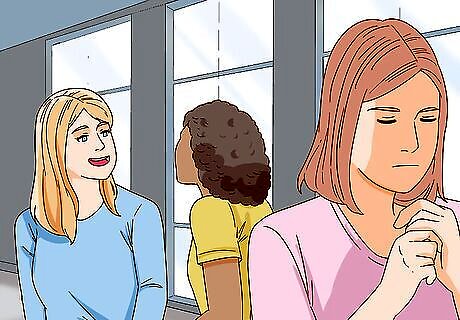
Determine if they are in fact, a fake friend. Try and determine if they are a fake friend. If they are, consider what they might be trying to gain from pretending to be friends with you. If they are a fake friend they may: Talk about you behind your back. Use you to climb up a particular social chain. Use you to get close to someone you are close to. Copy your work or use your intelligence. Try to get some sort of information from you. Only talk to you when they need something. Embarrass you or make you feel humiliated in public.
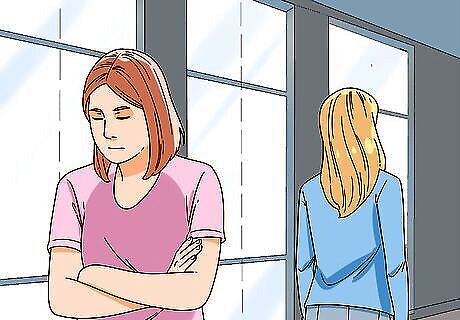
Don't fight breaking up with a friend. If you feel that your friend has changed, or that you are growing distant from each other, it may be a sign that your friendship is fading out. Even if you used to be close friends, people grow apart. Don't fight that growth, just be glad for the good times you spent together. If you feel you are growing apart as friends, you may not have to proceed through a formal break-up. You may choose to just let the friendship naturally fade. This may be a good alternative option to take if you feel like there is no strong reason you don't get along. Especially, if it's just that you have developed different interests and different groups of friends.

Remove the benefit for the fake friend. Removing the benefit may go against your nature or personality if you tend to be a “people-pleaser,” but your fake friend may be taking advantage of you. Additionally, they might leave you alone after they know they can't get what they want from you. If you think they are trying to copy your work, make it impossible for them by moving your seat or not letting them see your work. If you believe they are using you to get to someone else, keep contact with the person while the fake friend isn't around. If they only call you when they want something, deny whatever their request is. You could even tell them that you won’t be able to fulfill their request in the future either. For example, “Jenny, I know I’ve been giving you rides to work for the past month, but I’m not able to do that anymore.”
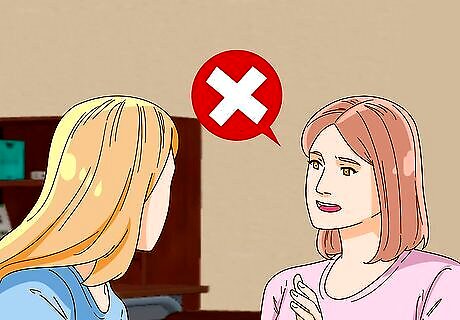
Keep contact minimal. As you are preparing to end your friendship, distance yourself from the fake friend as much as possible. Politely decline invitations to hang out by saying “I'm sorry, I can't right now.” The purpose is to give yourself a little space free from the stress of a fake friendship, while you figure out how to end the relationship with them. Try to avoid outright ignoring them or giving them the “silent treatment.” Those are perceived as immature and will likely cause an angry reaction from the fake friend and drama with any mutual friends you have.
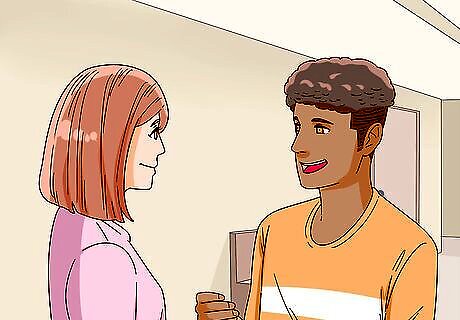
Ask for advice from people you trust. Talk to your family, close friends, or your support system; and see what they say about the situation. Maybe they will be able to offer you an alternate perspective or advice on what is going on. If you don't feel comfortable talking to close friends, or if you are not particularly close with your family members, seek advice from a school counselor or therapist. School counselors have added experience in dealing the relationships and friendships in a school setting that you might find helpful.
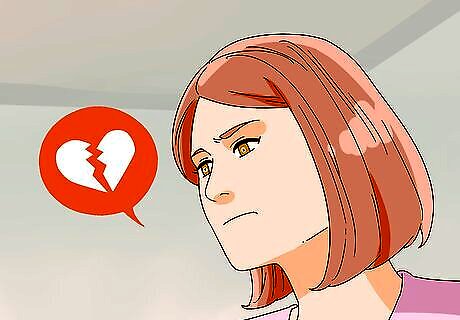
Make sure you want to end this friendship. Going through with the termination of a friendship is a big deal. It is hard to come back from if you regret your decision later. Try to consider other options if you are currently in a fight, or if you are just trying to get them to do something specific. If you really want to end the friendship, you should be able to think of several reasons why this friendship makes you unhappy and why you think you would be healthier without this friend around. Consider writing a pro and con list of your friendship and see how it weighs out.
Breaking Up
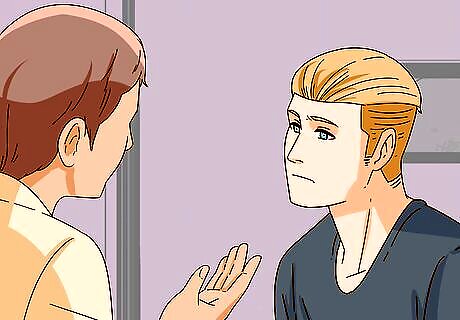
Break up with them face to face. If you have decided you would like to end your friendship, make sure to do it right and give it the attention it deserves. You may be dreading it, but try and rise above those emotions and face the situation with maturity. Remember that at one time you were friends, and you may have to interact with this person in the future, so try and be as respectful as possible throughout this process. Avoid breaking up with them over the phone. The only way this is acceptable is if you cannot see the person face to face for a long time, or if you are concerned about violent behaviors or your safety. Don't end your friendship with them over text or e-mail. It sends the wrong message about you as a person and how you deal with your friends. Additionally, it risks more misunderstandings in communication.
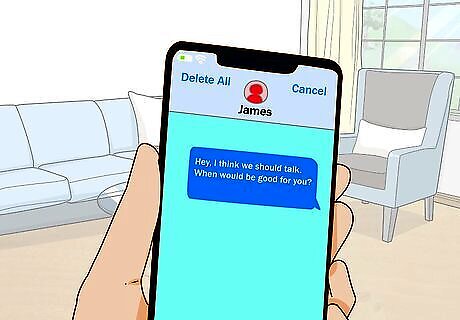
Ask to meet with them. Schedule a time and place to meet with your friend to talk about ending the friendship. Even if you are planning to have the conversation over the phone, schedule it so that you know you can both set aside some time to focus on this and nothing else. Try not to wait too long, chances are your friend can feel that something is up and waiting may make everyone unnecessarily anxious. Make the request simple and straightforward. Try “Hey, I think we should talk. When would be good for you?”
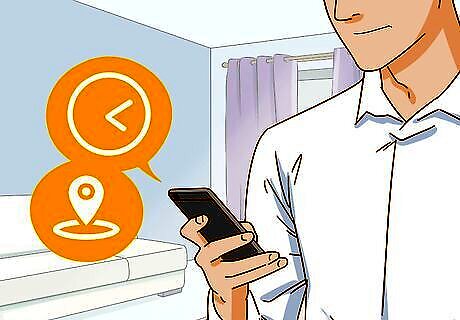
Pick a time and a place to meet. There are several things to consider when planning your conversation with your friend. The goal is to create the space for the conversation to go as smoothly as possible. The following may help. Have the conversation in a private place. It can potentially be a very emotional time and that shouldn't have to occur somewhere where you could draw an audience. Make sure you are both calm and that you are not having the conversation right before something very important such as a test or a performance review at your job. Keep a time limit in mind and avoid meeting somewhere, like over a meal, where you could potentially get stuck for longer than you would like.
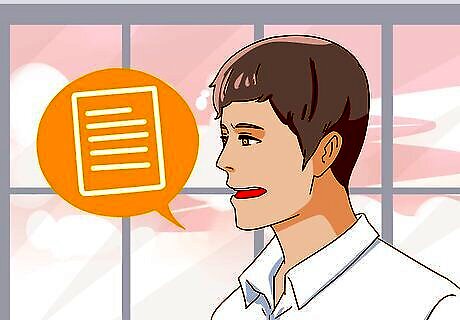
Plan what you are going to say beforehand. It is a good idea to sit down and prepare what you want to say to someone during any break up, but especially a break up as complex as this. Organizing your thoughts beforehand allows you be clear, firm, and thorough. Make sure you are clear in your communication with your friend. There should not be any doubt in their minds about what you were trying to say after meeting with you. Be firm about what you want and what you don't want in your friendships, and in this friendship going forward. Be thorough and make sure you are communicating everything you want to say and everything you feel during this conversation. Planning this out will help you avoid the instance of “I should have said this!” later on. When planning what you are going to say, find a good balance between being honest, and being kind. Try to avoid blaming or being unnecessarily mean to your soon-to-be-ex friend.
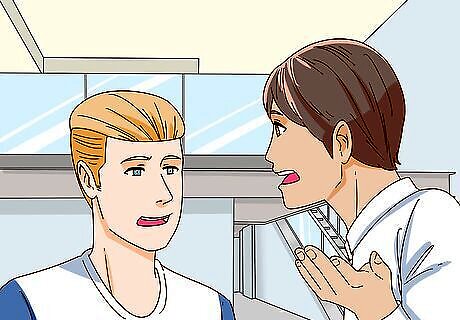
Talk with them. This is the potentially anxiety-inducing part, but hang in there. You have done all the preparation, so it is time to have the conversation that you have planned and prepared for with them. Explain how you feel, and why you think you should not be friends any longer. Be honest and straightforward but try and remain as nice as possible. Start the conversation by acknowledging that this is difficult. “This is going to be really hard to say, and probably hard to hear.” Get to the point as quickly as possible. “I've been really unhappy in our friendship, and I don't think it is a good idea for us to be friends anymore.”

Have a good reason. As you get further into the conversation, you will reach a point where an explanation of why you want to end the friendship is necessary. Explain why you have been unhappy, with the least amount of blame possible. What ever your reason is try and start with the phrase, “I feel...” Here are some examples. If your boyfriend cheated on you with your friend, “I feel like I cannot trust you, and I'm hurt that someone who considered themselves my friend would do that to me.” If they constantly make fun or you, or make you feel bad about yourself, “I feel like spending time with you is not healthy for me and my self-esteem because of some of the things you say about me.”

Finish what you want to say. You have explained why you think it is a good idea for you both to go your separate ways. Now, you can begin to end your part of the talk. You'll want to make sure you are kind and you mention some of the good parts of being friends as well. Try to: Explain to them that you have an appreciation for the good times you have had together. “I've really enjoyed spending time with you. I'll always keep those good memories close to my heart. Like that time we...” Split the blame, if you can. “I don't know, maybe we are just not compatible as friends. Or maybe I wasn't the best friend I could have been either.”
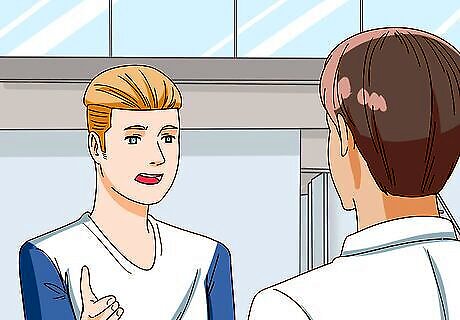
Give them a chance to talk. You have said your side of things, give them a chance to respond to what you say. Be prepared for the fact that your friend may have many different emotional reactions. They may apologize profusely, they may get defensive or angry, or they may just be very sad. It is possible that they may experience all three. Try and hear them out. Address anything that might come up like any misunderstandings or anything that might change the way you feel about breaking up with them. Avoid getting into an argument with them at this point. If they respond with anger, they are likely to begin to say hurtful things to you or to try and blame you. Don't engage with them, simply tell them “I'm sorry you feel that way.”
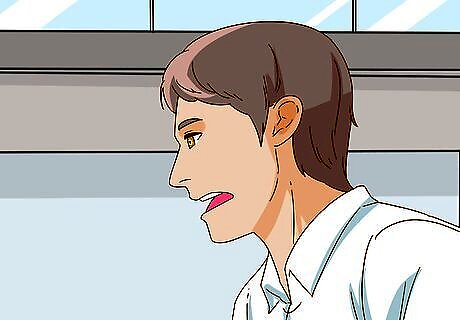
End the conversation. The way you end the conversation will depend on how they react to what you have said. Again, prepare for a variety of responses on their behalf, then no matter how the conversation goes, you have an exit strategy for yourself. If they react with anger and begin raising their voice, don't engage with them and instead say, “I'd like to talk to you about this calmly, but if you continue to yell at me I'm going to leave.” If they react with sadness, allow some time to continue to talk and then when they are calm again try saying, “Thank you for taking the time to talk with me. I'm sorry this worked out this way.” If they are apologetic, see how you feel and consider whether or not you might want to try to repair the friendship. If you need some time to process what they say, tell them that. “I need some time to think about what you said. Can we talk again tomorrow?”
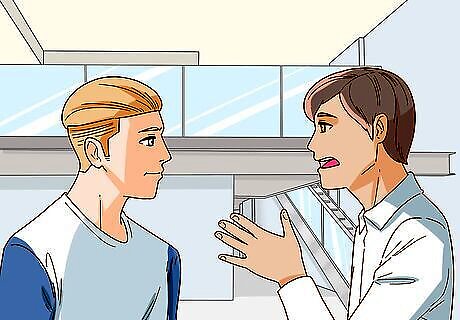
Set up boundaries. Decide ahead of time what kind of contact you want from this person, if any, going forward. Make sure you are certain of your decision and communicate that to them at the end of your conversation. Be clear that this is what you want and ask them to respect it. Having your boundaries set before hand will make it easier to stick to them later on. If you have mutual friends, suggest that maybe you two should only hang out in groups. If you would prefer to never have contact with them again, than that is fine too. Let them know that you would prefer they do not contact you going forward. If it is a toxic friendship, make sure for your own health you make a clean break with no contact.
Dealing With the Aftermath
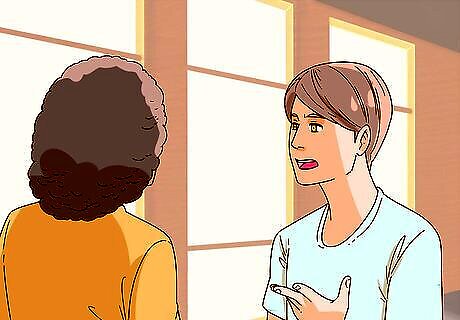
Stick to the boundaries you set. You may notice a small backlash from the break up with your friend. Your ex-friend may try and get back on your good side or get back in touch with you. If they do, remind them of the boundaries you set and ask that they respect them. They may be dealing with a lot of anger and may lash out at you in person, online, or within your group of mutual friends. Your ex-friend is just trying to get a reaction out of you or just blowing off steam. Don't respond to this type of behavior at all. It may take some time, but they will accept it.

Ignore rude, immature, or passive aggressive behavior. Know that this is probably easier said than done. Remind yourself that you ended the friendship for this exact reason, because you did not want to have to deal with the drama they bring into your life. This behavior is part of the reason they made a fake friend in the first place. Take comfort in the fact that your decision to end things was the correct one. Watch out for the following behaviors: Constant texts, calls, emails, or social media messages. They may say mean things about you to others or try to turn mutual friends against you. Making fun of you or gossiping about you. Making you feel as though you are responsible for their choices or behavior.

Deal with the emotions of losing a friend. Even though you were the one to end the friendship, realize that a friendship still ended. You may be feeling a mix of emotions including relief, freedom, guilt, sadness, anger, or hopelessness. Let yourself grieve the end of the friendship and cope with whatever emotions or mix of emotions come your way. One good way to deal with the emotions is to write about them. Spend some time writing all the things you are thinking and feeling about the break up, and why those might be coming up for you. Journaling about what you are going through will help you identify how you feel as well as help you process through the emotions and constructively get them out. Suppressing and avoiding your emotions will only make you feel worse in the long run. It's important to acknowledge how you're feeling and express that in a healthy way.

Address any other friendships it might have affected. Especially if you are in school, you may have mutual friends that you share with your ex-friend. Breaking up your friendship potentially puts these mutual friends in an awkward position. They may feel that they have to pick sides, or they may not know how to act around you in regards to the other friend. In an informative way, talk to them about what happened. Don't gossip, and avoid going into detail if you can. Try something like, “I know you and Ashley are friends and since you and I are also friends, I just wanted to let you know what happened. Ashley and I are not friends any longer. We talked about it and I think we each got to say what we needed to say. I'm only telling you this because I don't want you to feel uncomfortable about it, or put in the middle.”

















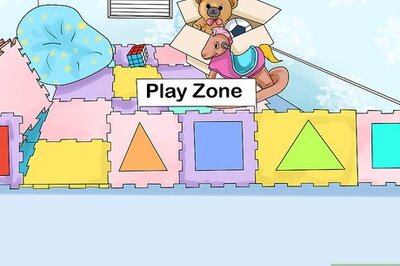


Comments
0 comment